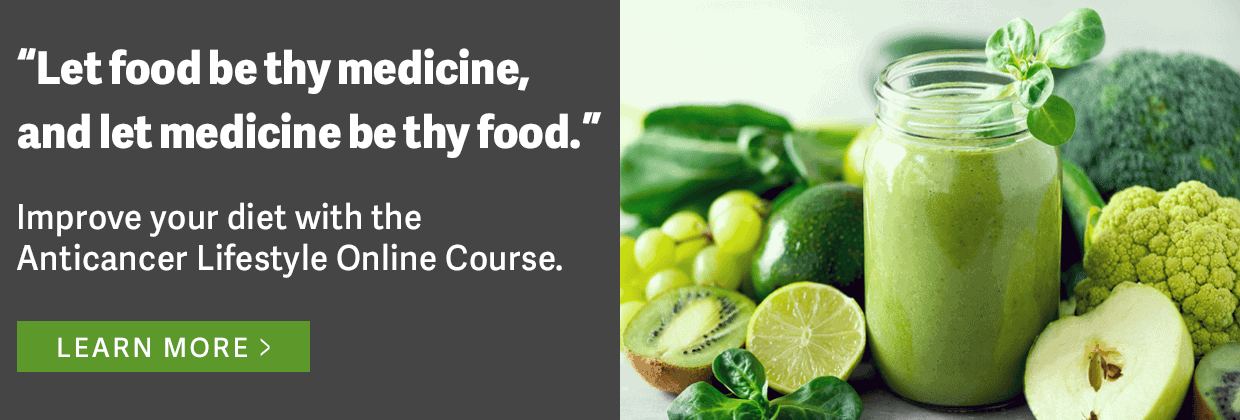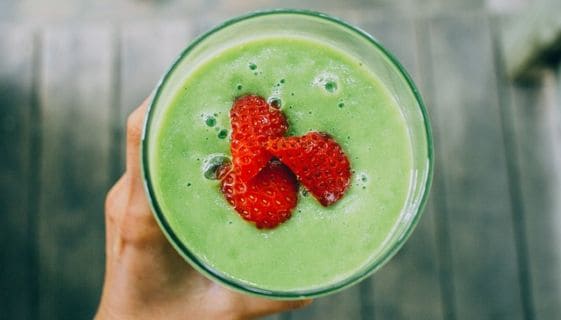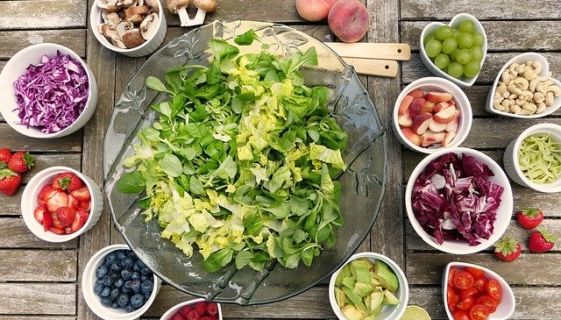Now more than ever it is important to continue nourishing your body with foods that satisfy you. But with many localities currently requiring that you “hunker down” at home as much as possible, you may be limiting your trips to the grocery store for specialty items and opting instead to make meals from the contents of your pantry. Here are some useful, mostly shelf-stable items you might want to stock up on so you can keep making those nutritious meals. You can also download our latest eBook for recipes on how to combine these foods for optimal health!
-
Nuts and seeds
Nuts and seeds contain healthy fats and protein. They are also a good source of many vitamins and minerals including vitamin E. This includes nut and seed butters (almond butter, peanut butter, sunflower seed butter, etc). Just be mindful to check for no added sugar or salt in the ingredient list when purchasing. Nuts and seeds can be eaten as snacks or added to meals for a nutritional boost. This article summarizes the nutritional value of nuts and seeds, and contains a chart that compares the calories and benefits of each type.
-
Whole grains
These include whole grain bread, pastas, quinoa, brown rice, oatmeal, etc. When purchasing whole grains that have been processed (into bread or rice cakes, for example), make sure that the first ingredient contains the words “whole”, otherwise you may not be consuming the whole grain! For example, avoid breads made from “wheat flour” and instead choose breads made from “whole wheat flour”. Consider buying grains in their whole, intact forms. For example, buy oats instead of oatmeal bread, or whole millet instead of millet crackers). If you’re a fan of oatmeal for breakfast, we recommend using steel-cut oats, as they are the least processed type, though they do take longer to cook than regular rolled oats (hint: you can soak steel-cut oats overnight to reduce cooking time). Click here to compare the nutritional value of various whole grains.
-
Low sodium, organic stocks
Low sodium, organic stocks including veggie stock, chicken stock, turkey stock, etc. Stocks can be great to have handy when you’re cooking whole grains to give them more flavor, and/or when cooking items such as beans and lentils. Also, having stocks available makes it easy to whip up a nourishing soup such as a lentil soup. If you are purchasing an animal-based stock such as chicken or turkey stock, we recommend choosing organic, when possible.
-
Fresh, frozen and dried fruits
If you are having a hard time accessing fresh fruits, opt for the frozen. We do not recommend canned fruits, as they often contain added sugar, and most cans are lined with BPA, a hormone-disrupting chemical. When purchasing dried fruits be sure to read the label and choose those without added sugars. Apples, pears, and most citrus (including lemons, limes, and oranges) will stay good in the fridge for 1-2 weeks.
-
Fresh and frozen veggies
If you are having a difficult time accessing fresh veggies opt for the frozen. We do not recommend canned, since most cans are lined with the hormone-disrupting chemical BPA (or one of its relatives). Some fresh foods that will last at least 2-3 weeks include sweet potatoes and other root vegetables, garlic, and onions. Fresh foods that last 1-2 weeks include celery and carrots.
-
Unsweetened non-dairy milks
Unsweetened non-dairy milks, including almond milk, soy milk, etc.
-
Organic baby food
Yes, baby food! Baby food is an outstanding way to consume fruits and veggies in a convenient, non-perishable way. Baby foods contain ready-to-eat pureed fruits, vegetables, lean proteins, and whole grains. If you’re a fan of applesauce and your store has an abundance of fresh apples, it’s easy to make your own.
-
Whole, organic, soy-based products
Whole, organic, soy-based products including tempeh, tofu, edamame (fresh or frozen), miso, and unsweetened soy milk. These items will last in your fridge for quite some time compared to other more perishable protein sources such as meats. They are anti-inflammatory foods that are also great for promoting hormonal and heart health.
-
Legumes
Legumes including beans and lentils, and legume-based pastas. These affordable, nutritious, and versatile foods will stay good in your pantry for a long time.. Legumes are high in fiber and contain essential nutrients such as iron. Keep legumes handy to create a variety of health-promoting dishes while you’re home, including chilis, soups, bean and lentil pastas, salads…& the list goes on!
-
Olive oils
Look for olive oil in light-blocking dark brown or green bottles. Buy extra-virgin olive oil for low to medium heat cooking and to add to salad dressings. When cooking with higher heat, consider using more heat-tolerant oils such as avocado oil, organic grass-fed ghee, or unrefined coconut oil.
-
Herbs & spices
Herbs and spices not only provide you with flavor and color, they also contain anti-inflammatory properties and will give your dishes added nutritional punch. Consider keeping on hand some bay leaves, black pepper, cinnamon, ground cumin, ground coriander, curry powder, turmeric, and sea salt. Note: fresh ginger will last 2-3 weeks in the fridge. Fresh parsley and mint will last up to 1-2 weeks.
-
Tomatoes and low sodium tomato sauces in glass jars
Keep tomato-based products on hand for quick and easy pasta dishes, and to add more flavor to sauteed vegetables and dishes such as chili. We discourage buying tomato products in cans, since virtually all cans are lined with the hormone-disrupting chemical BPA (or one of its relatives).
-
Teas including green, black, and white teas
Unsweetened teas are a great way to stay hydrated throughout the day while also providing your body with antioxidants to fight oxidative damage. Green, black, and white teas are high in polyphenols, which have anti-inflammatory properties.
-
Natural sweeteners
These include raw U.S. honey (local when possible—let’s support our local beekeepers!), and pure maple syrup.
-
Other
Low sodium tamari, coconut milk, unsweetened shredded coconut, dates, fermented foods such as sauerkraut and kimchi, nutritional yeast, and tahini. All of these items can add interest and flavor to other dishes.
For some recipe ideas, here are a few links:



 Crystal Pace
Crystal Pace 


